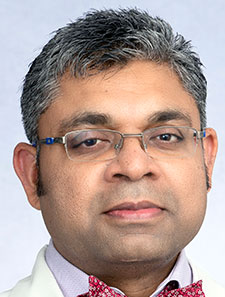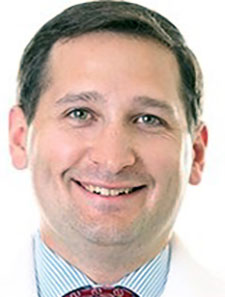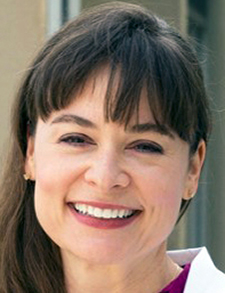Trends in Benefits for Hospitalists, and How They Help With Recruitment and Retention
 Every incentive counts when it comes to recruiting and retaining top talent. In particular, today’s hospitalists view funding for continuing medical education (CME) and getting paid time off (PTO) as some of the most important benefits.
Every incentive counts when it comes to recruiting and retaining top talent. In particular, today’s hospitalists view funding for continuing medical education (CME) and getting paid time off (PTO) as some of the most important benefits.

Dr. Gupta
“I’ve seen a growing trend in younger candidates asking about CME and PTO during their initial recruitment screening call,” said Vineet Gupta, MD, FACP, CHCQM, SFHM, chair of the recruitment and retention committee and a clinical professor in the department of hospital medicine at the University of California San Diego in San Diego, an academic hospital system with around 800 beds.

Dr. LoPresti
Charles LoPresti, MD, SFHM, chief of hospital medicine at University Hospitals in Cleveland, which has 13 adult medical centers, including an academic center and community-based centers, agreed that CME and PTO are extremely important to hospitalists today. “A shift in how hospitalists value work-life balance has occurred,” he said.
According to Thomas Haugh, MBA, FACMPE, executive service line director in the department of adult and pediatric hospital medicine at WakeMed Health & Hospitals in Raleigh, N.C., a not-for-profit community health system with 973 licensed beds, any significant gap in a recruitment package will impact recruitment success. “A comprehensive benefits package along with a competitive salary is vital to recruiting and retaining quality hospitalists,” he said. “If you’re competing against other local hospital systems for talent, your recruitment package must be in line with the competition.”
Funding for CME
Many medical institutions give a stipend or provide reimbursement for CME. WakeMed Health & Hospitals, for example, gives an annual CME stipend to hospitalists, who are then responsible for remaining compliant with their CME and licensure requirements. Physicians from .75 to 1.0 full-time equivalents receive the full amount in a taxed, lump sum payment, which avoids the hassles of having to track receipts and provide reimbursements, Mr. Haugh said. The allowance is prorated for physicians from .5 to .74 full-time equivalents.
University Hospitals encourages hospitalists to pursue any CME that benefits their knowledge and career. Hospitalists can be reimbursed up to a certain amount for expenses related to society membership fees, travel, online courses, and books.
“Not only do hospitalists benefit by either continuing their medical education or professional development, but our organization also benefits by having hospitalists stay current on changing best practices or gain knowledge that will help them prepare for leadership roles,” Dr. LoPresti said.
Hospitalists at UCSD receive complimentary institutional access to UpToDate, a resource which provides healthcare professionals with clinical and drug information, as well as access to a multitude of CME courses offered by the institution for free or at deeply discounted rates, Dr. Gupta said.

Dr. Green
UCSD also covers expenses related to external professional conferences and encourages members to speak at these events as well. Although the university doesn’t offer individual discretionary funds, this may change in the future based on prevailing national trends, Dr. Gupta said.
Amanda Green, MD, chief medical officer in the department of hospital medicine at Paris Regional Health in Paris, Texas, a 152-bed rural community hospital, said hospitalists can submit for reimbursement for CME-related activities and expenses, such as in-person course tuition, books, travel expenses related to taking out-of-town courses, online courses, and memberships to professional organizations. The only requirement is that the expense must be designated as an appropriate education reimbursement expense according to the Internal Revenue Service.
PTO ranks highly
Hospitalists often work in high-stress environments with long shifts, making PTO a critical factor in preventing burnout. Institutions offering more generous PTO policies are therefore more attractive, particularly to younger physicians who prioritize flexibility and mental well-being, Dr. Gupta said.
UCSD gives hospitalists PTO for various reasons, such as childbirth and extended illness, for up to six weeks. PTO is also given for bereavement, jury duty, and family care.
Some may argue that if a hospitalist gets seven days off every other week, they don’t need PTO. “But it’s not necessarily about need,” Dr. LoPresti said. “Hospitalists compress their work into a single work week, so it’s only fair that they’re allowed to have some PTO like their colleagues who work more traditional workweeks.” PTO can be used for vacation and sick days. A separate allowance of days can be used for bereavement, short-term leave, and maternity and paternity leave.
Despite the appeal of PTO, WakeMed Health & Hospitals doesn’t offer it in the traditional way. Full-time hospitalists work an average of 16, 10-hour shifts per month (prorated for part-time), equating to 1,920 annual hours. A traditional full-time employee works 2,080 annual hours and accrues PTO. “In essence, PTO is built into their monthly-annual hours’ requirement,” Mr. Haugh said. “Scheduling flexibility allows physicians to block periods of time to allow for extended time off.”
For example, shifts can be front-loaded for one month and back-loaded the next month to provide an extended gap of no-shift requirements. “Scheduling flexibility is a huge satisfier for our hospitalist team,” Mr. Haugh said. Hospitalists receive three paid sick days annually, which are only to be used for personal sickness, not family care.
Paris Regional Health doesn’t offer PTO, either. Hospitalists are paid by the shift, at an hourly rate, with a quality bonus at the end of the year based on five metrics (i.e., discharge before noon, response to queries, medical record completion, using stroke order sets, and computerized provider order entry use), Dr. Green said.
Unlike others, Dr. Green doesn’t think that CME and PTO sway recruiting decisions significantly. “The base pay rate and scheduling flexibility seem to be the main drivers for decision making beyond location and family needs,” she said. Flexible scheduling works by having everyone provide their desired shifts. Hospitalists can request certain days off rather than having a required pattern, such as seven days on and seven days off. A coordinator arranges the schedule around this with a few needed adjustments.
Working 12, 12-hour shifts a month is the minimum to maintain full-time benefits. Hospitalists can either choose to work that minimum, or they can work much more (which several hospitalists do), Dr. Green said.
Increased demand for maternity and paternity leave
A growing trend is a desire for extended paid leave for childbirth. In response to employees’ needs, University Hospitals recently began offering up to 12 weeks of fully paid maternity leave. The institution also offers one week of paid paternity leave. An adoption assistance program reimburses certain costs of the adoption process.
In general, Dr. LoPresti has seen more medical institutions offering extended paid maternity and paternity leave. “The job market is starting to demand that these are standard benefits for physicians,” he said. In fact, according to the 2023 SHM State of Hospital Medicine Report, more than 60% of hospitalist groups reported giving paid maternity leave, and more than 50% reported offering some kind of paid paternity leave.
UCSD gives hospitalists PTO for childbirth for up to 12 weeks and parental bonding for up to six weeks. “Early-career physicians may want to start a family soon after obtaining their first job,” Dr. Gupta said. “Providing protected time for parental bonding underscores UCSD’s commitment to creating a family environment around their employees.”
Although Mr. Haugh said paternity care is a hot topic for younger male hospitalists, WakeMed Health & Hospitals doesn’t offer paid paternity leave. Male physicians can apply for a leave of absence via the Family and Medical Leave Act (FMLA) due to the birth of a child, but it would be unpaid. “Some male physician candidates have inquired about paid paternity leave, but no one has declined a job with us because we don’t offer it,” he said.
Unlike others, Dr. Green hasn’t heard requests for paid paternity leave, most likely because the hospital has had a stable group of hospitalists for many years, and most have already had children. Currently, the institution complies with FMLA, which allows employees to take off as much time as needed if they have a child, illness, or unforeseen event, but it would be unpaid.
Other “non-mainstream” benefits
Medical institutions have found that a variety of other non-traditional benefits appeal to employees as well. UCSD’s division of hospital medicine makes conscious efforts to help members maintain a work-life balance by offering a variety of perks. “Most of our faculty members have families that include kids; respecting their personal time is very pertinent,” Dr. Gupta said. “Offering non-mainstream benefits not only contributes to work-life balance but also professional development and supportive work environments, which play significant roles in recruitment and retention strategies.”
Wellness programs, for example, can help reduce burnout and improve mental and physical health, Dr. Gupta said. They demonstrate UCSD’s commitment to members’ overall wellness.
UCSD also promotes well-being through various initiatives, such as a check-in program called the Healer Education Assessment and Referral Program, which offers education, anonymous stress and depression screening, and short-term, no-cost, confidential counseling and individual check-in meetings.
Further, employees can use their UCSD email address to use Headspace Care (formerly Ginger), a mental health app that puts behavioral coaches, self-care resources, and video-based therapy and psychiatry services at users’ fingertips.
When a wellness survey found that the majority of medicine faculty, including hospital medicine members, didn’t have a primary care physician (PCP), UCSD set up a PCP hotline for physicians to establish PCPs emergently, Dr. Gupta said.
A dedicated wellness committee curates programs, such as yoga sessions, day-out socials, and holiday events, to promote cohesion among colleagues. Monthly professionalism awards and recognition presentations boost morale.
UCSD has an onsite daycare facility for employees to use. “It provides an option near the workplace which fosters peace of mind, ultimately increasing productivity by reducing absenteeism and childcare-related disruptions,” Dr. Gupta said.
For hospitalists, UCSD provides a generous relocation allowance for new hires. “This eases the financial and logistical burden of moving, especially for those residing out of state,” Dr. Gupta said.
WakeMed Health & Hospitals also offers a comprehensive benefits package, including: health and wellness programs (e.g., health coaching, counseling, wellness rewards, maternity management, and tobacco cessation); flexible spending accounts for health and dependent care; disability and life insurance; critical illness insurance; Legalshield insurance, which provides 24/7 access to legal advice; 529 college savings plans, a tax-advantaged savings account that helps save for college; discounts from local businesses; and pet insurance. Employees can all choose to participate in these voluntary programs at discounted rates, and some via payroll deductions, Mr. Haugh said.
University Hospitals offers health and wellness programs as well as incentives via online modules and discounts at fitness centers. A free counseling program is available to employees, although it’s mostly to help caregivers get connected to trusted agencies and providers for support, Dr. LoPresti said. The institution also offers a standard relocation benefit.
As employees, Paris Regional Health’s hospitalists receive the same benefits as other team members. One exception is that hospitalists can participate in a non-deferred retirement program, which is a way to contribute up to 50% of their salary to an investment retirement account in which the distribution and tax burden happens within one to two years after separating from the company, Dr. Green explained. The institution also offers wellness programs and free counseling. Relocation allowances and student loan reimbursements are negotiable benefits.
The bottom line
Although base compensation continues to be the most important component in the eyes of new recruits, CME, PTO, and other non-mainstream benefits can be the deciding factor when choosing between two offers, Dr. LoPresti said. Because salary trends and fair-market-value compensation are widely published, the base salary between two similar jobs is often fairly close.
Karen Appold is an award-winning journalist based in Lehigh Valley, Pa. She has more than 25 years of editorial experience, including as a newspaper reporter and a newspaper and magazine editor.